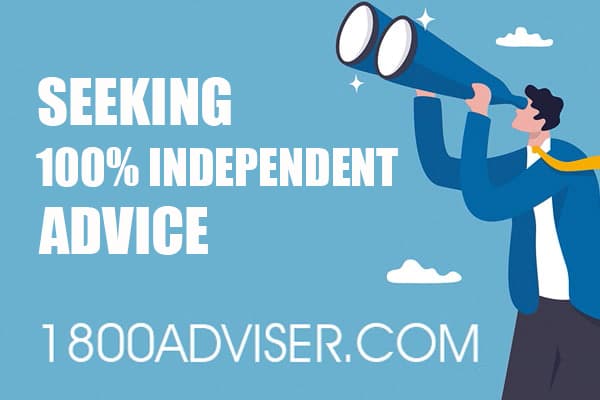Rolling over a 401(k) plan is a crucial financial move, so you should try to figure out the best way to roll over a 401(K) to an IRA or ROTH IRA. The easiest and most tax-efficient way to do it is through a direct rollover from your 401(k) plan to a new firm that will manage your IRA. Failing to opt for a direct rollover can have significant negative tax implications. Let’s explore the steps involved in the rollover process, ensuring you navigate it smoothly.
Select Your IRA Provider: Begin by choosing the IRA or Roth IRA provider you wish to use. You’ll need to open an account with a financial institution or brokerage firm offering these accounts. Fee-Only advisers can help you select the best firm that suits your specific financial needs.
Contact Your 401(k) Plan Administrator: Reach out to your 401(k) plan administrator and inform them of your intention to roll over your 401(k) to an IRA or Roth IRA. They will provide you with the necessary forms and instructions for initiating the rollover. They may also tell you the best way to roll over a 401(k) plan based on their experience. Just listen. You may or may not learn something and they may even have a financial incentive to encourage you to keep your money in the plan.
Transfer the Funds: You have two options for moving the funds. You can either have them transferred directly from your 401(k) to your IRA or Roth IRA, or you can take possession of the funds and perform the rollover yourself. If you choose the latter, ensure you deposit the funds into your new IRA or Roth IRA within 60 days to avoid potential tax consequences.
Determine Your Investment Strategy: Once your funds are in your IRA or Roth IRA, decide how you want to invest them. You have a wide range of options to choose from, including mutual funds, exchange-traded funds (ETFs), individual stocks, and more.
It’s important to note that when rolling over a traditional 401(k) to a Roth IRA, you’ll typically be required to pay taxes on the converted amount. This is because contributions to a traditional 401(k) are made on a pre-tax basis, while Roth IRA contributions are made after taxes. This rollover effectively transforms pre-tax contributions and earnings from your 401(k) into after-tax funds in your Roth IRA.
However, certain circumstances may allow you to perform a tax-free rollover from a traditional 401(k) to a Roth IRA. For instance, if you’re transferring funds within the same plan and the plan permits in-plan conversions, you may avoid taxation.
Keep in mind that the rules for rolling over a 401(k) to a Roth IRA can be complex. For example, there are rules and restrictions to be aware of when performing a 401(k) rollover. For example, 401(k)s subject to loans or hardship withdrawals may not be eligible for rollovers. For personalized guidance, consult with a Fee-Only financial advisor or tax professional who can provide in-depth insights into your specific situation.
In conclusion, borrowing from a 401(k) can be a useful option in specific situations, but it’s vital to carefully weigh the potential risks and benefits before making a decision. The suitability of this approach is highly personal and depends on your unique circumstances. To make an informed choice, consider consulting with a Fee-Only financial adviser who can review your specific situation and provide guidance.
About This Article
This article was published and distributed by 401kPlanAdviser.com, a trusted source of independent ideas. It should be viewed as general and educational information and not as financial, tax or legal advice. Individuals seeking advice tailored to their specific situation are encouraged to schedule a free consultation with a professional listed in the 1800Adviser.com directory. Both 401kPlanAdviser.com and 1800Adviser.com are owned and operated by The Independent Adviser Corporation. For additional information, please refer to their Privacy Policy and Terms of Use, Legal Notices, and Disclaimer.







